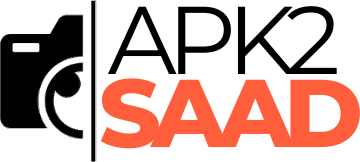Introduction
For many individuals and families, owning a home is a dream come true. However, the high cost of purchasing a house often makes it necessary to secure a home loan. When seeking a home loan, one of the most critical factors to consider is the interest rate. Home loan interest rates play a significant role in determining the overall cost of your mortgage and can have a substantial impact on your financial well-being. In this comprehensive guide, we will delve into the intricacies of home loan interest rates, helping you make informed decisions on one of the most significant financial commitments in your life.
Chapter 1: Types of Home Loan Interest Rates
Before diving into the specifics, it’s essential to understand that there are various types of home loan interest rates. The two primary categories are:
- Fixed Interest Rate:
- A fixed interest rate remains constant throughout the loan tenure, ensuring that your monthly EMI (Equated Monthly Installment) remains unchanged.
- This type of interest rate offers stability and predictability, making it easier to budget for your mortgage.
- Fixed interest rates are ideal when market interest rates are low and expected to rise.
- Floating/Variable Interest Rate:
- A floating interest rate fluctuates in response to market conditions, such as changes in the benchmark interest rate set by the central bank.
- This type of interest rate can result in lower initial payments when market rates are low but may increase over time.
- Floating interest rates are suited for borrowers who can tolerate financial fluctuations and anticipate declining interest rates.
Chapter 2: Factors Affecting Home Loan Interest Rates
Several factors influence home loan interest rates. Understanding these factors will help you anticipate changes in your mortgage costs and make informed decisions:
- Market Conditions:
- The overall state of the economy, including inflation, the central bank’s monetary policy, and demand for housing loans, has a significant impact on interest rates.
- Credit Score:
- Your credit score plays a crucial role in determining the interest rate you are offered. A higher credit score usually leads to lower interest rates.
- Loan Amount and Tenure:
- The amount you borrow and the loan tenure can influence your interest rate. Larger loans and longer tenures may result in slightly higher rates.
- Loan-to-Value Ratio (LTV):
- LTV ratio refers to the percentage of the property’s value that you are financing through the loan. A lower LTV ratio typically leads to lower interest rates.
Chapter 3: Fixed vs. Floating Interest Rates: Pros and Cons
Choosing between a fixed and floating interest rate is a critical decision. Each option has its advantages and disadvantages:
Fixed Interest Rate:
Pros:
- Predictable monthly payments, making budgeting easier.
- Protection against rising interest rates.
- Peace of mind, as your EMI remains stable.
Cons:
- Typically higher initial interest rates compared to floating rates.
- May not benefit from falling market interest rates.
Floating Interest Rate:
Pros:
- Lower initial interest rates in a declining rate environment.
- Potential for reduced overall interest cost over the loan tenure.
- Flexibility in prepayment without significant penalties.
Cons:
- Unpredictable monthly payments as rates can fluctuate.
- Exposure to interest rate hikes, leading to higher EMIs.
Chapter 4: How to Get the Best Home Loan Interest Rate
To secure the best home loan interest rate, follow these tips:
- Improve Your Credit Score:
- Pay off existing debts and bills on time.
- Avoid opening new credit accounts before applying for a home loan.
- Shop Around:
- Compare offers from different lenders to find the most competitive interest rate.
- Negotiate with Your Lender:
- Don’t be afraid to negotiate with your lender for a better rate, especially if you have a strong credit profile.
- Consider a Co-Borrower:
- Adding a co-borrower with a high credit score can lead to a lower interest rate.
Chapter 5: Impact of Interest Rate on Your Home Loan
The choice of interest rate can significantly impact your financial situation throughout the loan tenure. Let’s explore how:
- Monthly Payments:
- A lower interest rate reduces your monthly EMI, making homeownership more affordable.
- Total Interest Paid:
- Over the life of the loan, a lower interest rate can save you thousands of dollars in interest payments.
- Loan Tenure:
- A lower interest rate may allow you to opt for a shorter loan tenure, saving you even more on interest costs.
Conclusion
Home loan interest rates are a fundamental aspect of your homeownership journey. The type of interest rate you choose, fixed or floating, and the rate itself can significantly impact your monthly expenses, overall interest paid, and financial security. By understanding the factors that influence interest rates and following the tips to secure the best rate, you can make informed decisions that align with your financial goals. Whether you’re a first-time homebuyer or considering refinancing, a well-informed approach to home loan interest rates is the key to successful homeownership.
3.5



